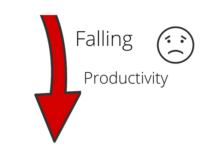As part of its endeavour to nurture a culture of performance and accountability, Tata Motors has announced the introduction of a performance improvement programme (PIP).
The PIP is meant for employees who have received a rating of ‘Not Met’ in the last performance cycle. Employees who have received a rating of ‘Partially Met’ consecutively for the last two performance cycles will also be covered under this programme. Some employees who have received a rating of ‘Partially Met’ in the last performance cycle will also be included in the plan based on their manager’s discretion.
Traditionally, companies have a performance cycle where feedback is given to employees once a year. However, nowadays the progressive companies have adopted the practice of quarterly reviews.
The PIP, which will run for 90 days will give clearance to all the employees who are reviewed as ‘On Track’.
The programme will be conducted by business HRs and other senior managers.
Generally, low-performing employees are put under such a programme so that they can be trained and guided properly to perform well in the future.
However, the employees who fail to show any progress during the 90- day PIP will be put under an extended PIP for another 45 days to give them a second chance to prove their ability to perform.
The extended programme will be reviewed by the skip managers or senior managers. The employees who fail to prove their mettle in the extended PIP will be shown the door.
The decision of the managers and the skip managers will be final and binding.
In most companies, the PIP lasts for around three to six months but with the disruption of technology, digital skills have become very vital and rare in the job market. In such cases, the PIP can be extended to nine months. It depends on the role or position of the employee.
During a PIP, a low performer is put under training with the supervising manager. The manager regularly updates the organisation on the progress of the employee.
Sometimes, the low performers are also put to work with some of the best performers to motivate their spirits. Apart from that, regular coaching and mentoring is done by the managers.
A PIP is generally treated as a filtering mechanism, where the organisation identifies the poor performers, and gives them a chance to improve over a few months. However, if nothing comes out of the exercise, they are asked to leave.
The most important factor in a PIP is being fair and objective in the whole review process.
It is also important to take regular feedback from the employees. After all, it is essential to find out the reason why they are not performing and remove the demotivating factors hindering their productivity.
Such activities help organisations identify, train and filter out the low performers.
Value our content... contribute towards our growth. Even a small contribution a month would be of great help for us.
Since eight years, we have been serving the industry through daily news and stories. Our content is free for all and we plan to keep it that way.
Support HRKatha. Pay Here (All it takes is a minute)




































